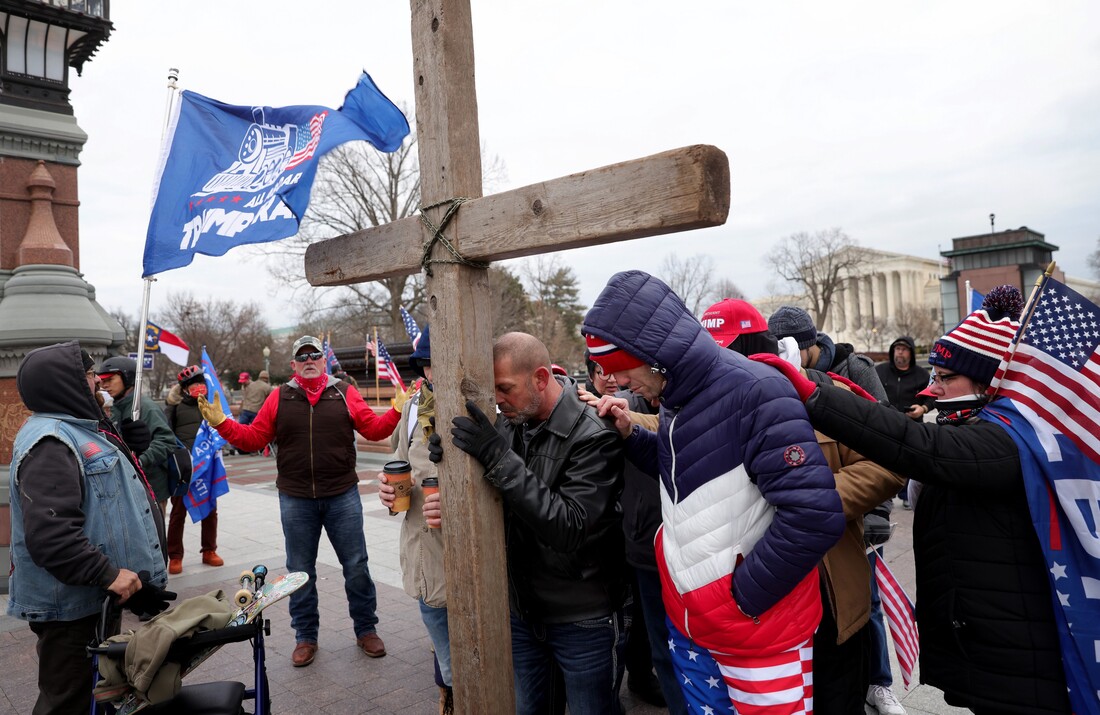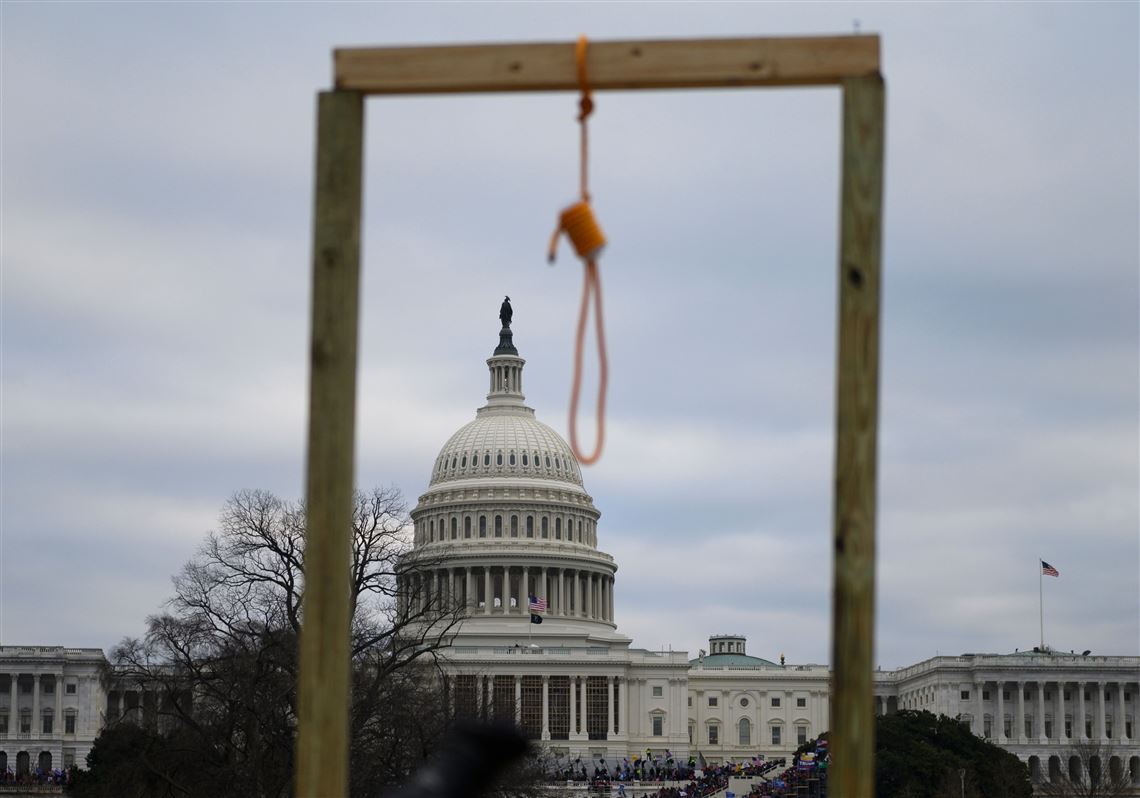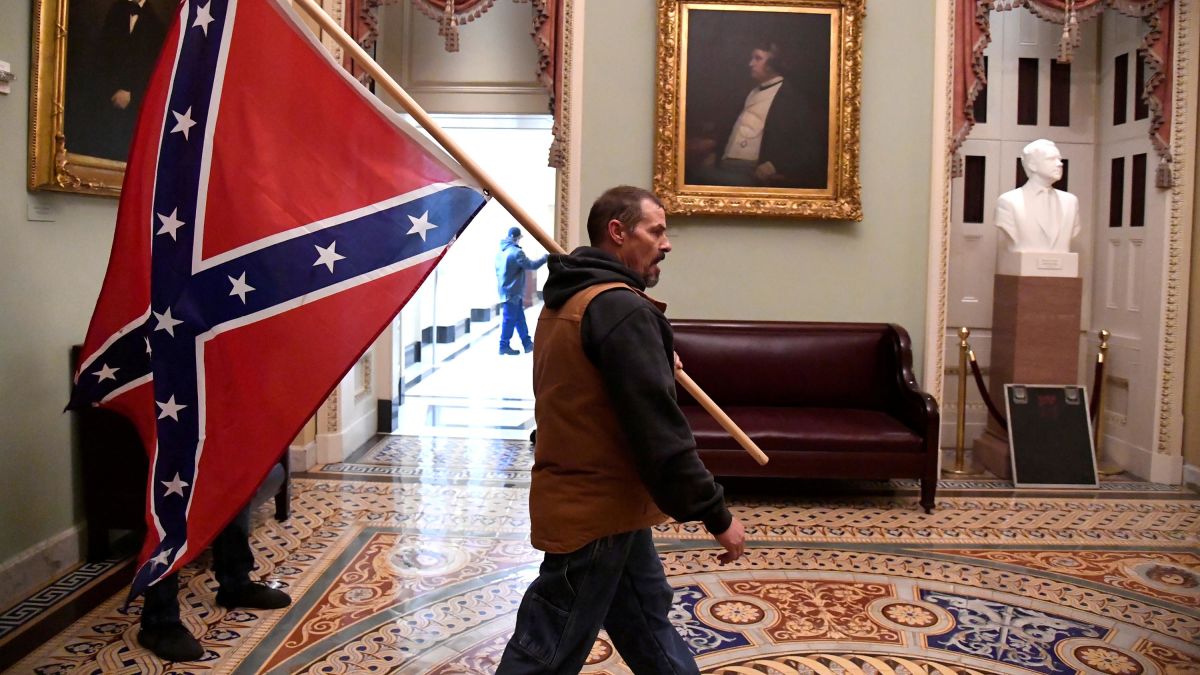This prayer rose up in me with tears, anger, and lament as I viewed disturbing images of the evils of white supremacy desecrating our capitol. Confederate flags, nooses, a “Camp Auschwitz” sweatshirt alongside QAnon symbols, “Jesus Saves” banners, and crusade crosses — the fruit of white nationalism and the cult of Trumpism extremists now rearing its ugly head in a brazen, demonic display of power.
This day of insurrection was also the Feast of Epiphany. A day in which we celebrate the revelation of God to all people through the humanity of Jesus Christ. This day was a day of revelation to be sure. Unveiling once again America’s greatest sin in the very heart of our beloved democracy. For while our forefathers painstakingly crafted documents envisioning a world of equality, liberty and justice for all, they did so knowing full well it was not truly for all. For neither the slave nor the first indigenous Americans were to share in this freedom, and the atrocities of horrors rooted deeply in our nation’s history persist. The overt and glaring evil of white supremacy running amok in our nation’s Capitol is a prophetic sign of a gaping, festering wound that must be healed in our country. Those who have ears to hear, let them hear.
2020 was an apocalyptic year, a year of revelation. Amidst pandemic and protest, the deep seeds of racism and white supremacy were exposed in ways that captured our attention. The brutal violence white people’s privilege had distanced them from now played over and over on screens. The prophets cried out, “I can’t breathe.”
You can be sure that God heard their cries. For God is a God who is on the side of the oppressed (Psalm103:6) — those who are crushed, degraded, humiliated, exploited, impoverished, defrauded, deceived, and enslaved. Our God is a God who heard the cries of the Israelites in their misery and suffering and brought them out of slavery. Our God is a God who came to bring good news to the poor and liberation to those who are bowed down under oppression (Isaiah 61). Jesus revealed God as one who brings liberation not with the flexing of power but in the laying down of power. Not seeking the dominance of sword, empire, wealth, fame, or politics, Jesus modeled a new, subversive reality. Blessed are the poor, the meek, the merciful, the mourning, the hungry, the pure in heart, the peacemakers, and the persecuted (Matthew 5:1–12). The greatest is the servant of all (Luke 22:25–27).
So liberal or conservative, left or right, do we have ears to hear? If God is with the oppressed in our country, what is the invitation of the Spirit? What is a posture of humility? Are we listening to the black and brown prophets of our day?
I am. As a white woman of privilege, as a follower of Jesus, and as a pastor, I am listening. I am listening to the voices of my black and brown siblings. I am reading articles and books. I am listening to podcasts and watching films and documentaries. I am learning a hard and grievous history. I am following black theologians and church leaders. I am listening to BIPOC leaders in my community. I am joining in protests and neighborhood vigils. I am lamenting with my fellow white folk, wrestling with my complicity, and praying prayers of repentance.
For if 2020 was a year of revelation, may 2021 be a year of repentance.
And if ever there was a time for the American church to repent, it is now. It seems blatantly obvious as we see images of confederate flags and lynching scaffolding amongst crosses and coups. Reformation is needed.
The greatest is the white supremacy baked into our nation’s Christianity from its inception. The horrors of slavery, colonization, and indigenous genocide were upheld with distortions of the gospel in the Doctrine of Discovery and a proslavery Christianity that perpetrated oppression. And its influence across the church in the United States of America can still be felt today.² With 40% of our nation’s population now identifying as non-white and gross racial inequities across every spectrum of society, the impact of the white church’s complicity can no longer be ignored.³
Other “problems” for the North American church worthy of rigorous examination and discussion would include individualism, consumerism, a modern form of Gnosticism, and Christian nationalism to name a few.
This is a time of reckoning. A time of revelation. A time for repentance. A time for reformation.
No matter what your political affiliations, repentance is called for. From the rural red-neck to the progressive hipster, we as white Christians are called to repent. Not just with our lips, but with our lives. Repentance means to shift or change one’s mind, to turn around and to act differently. We must lift our voices in prayer and humility. We must fully reckon with our troubled history and the sins of our nation. We must follow and learn from the faithfulness of BIPOC leaders. And we must reclaim the gospel of Jesus that is freedom for all people, disentangling our faith from whiteness and imperial oppression.
Let us turn from our idolatry and follow the way of Jesus. Frederick Douglass believed that “the widest possible difference” existed between the “slaveholding religion of this land” and “the pure, peaceable, and impartial Christianity of Christ.”⁴ Jesus preached a radical new vision of liberation in which the oppressed were lifted up, the ostracized were embraced, the slave and prisoner were set free, and the broken were healed.
“If one’s gospel falls mute when facing people who need the good news the most — the impoverished, the oppressed, the broken — then it’s no good news at all.” — Lisa Sharon Harper⁵
This is a time of reckoning. A time of revelation. A time of repentance. A time of reformation.
Those who have ears to hear, let them hear.
-by Jessica Ketola
² Michael Luo, “American Christianity’s White Supremacy Problem,” New Yorker, September 2, 2020, https://www.newyorker.com/books/under-review/american-christianitys-white-supremacy-problem.
³ Hedwig Lee, Michael Esposito, Frank Edwards, Yung Chun, and Michal Grinstein-Weiss, “The Demographics of Racial Inequity in America,” Brookings, July 27, 2020, https://www.brookings.edu/blog/up-front/2020/07/27/the-demographics-of-racial-inequality-in-the-united-states.
⁴ Luo, “American Christianity's White Supremacy Problem.”
⁵ D.L. Mayfield, “The Myth of the American Dream,”(Downer’s Grove, IL: InterVarsity Press), 47.



 RSS Feed
RSS Feed
